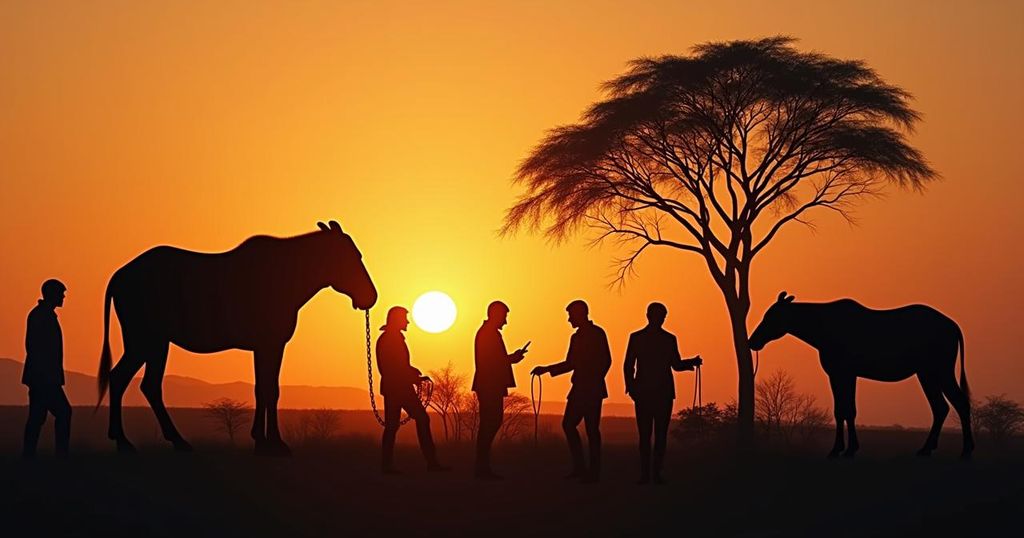Rising Mpox Cases in Africa Prompt Urgent International Response
Mpox cases are rising in Africa, with 15 countries affected and DRC and Burundi contributing to 90% of confirmed cases. The WHO reports over 6,580 confirmed cases this year and nearly 32,000 suspected cases, leading to significant fatalities. Vaccine donations are insufficient, prompting urgent calls from public health leaders including President Biden, who pledged $500 million and 1 million vaccine doses to assist affected nations. A comprehensive response strategy, including enhanced community engagement and surveillance, is vital.
As mpox cases escalate throughout Africa, public health authorities and international leaders are calling for urgent action to manage the viral outbreak. Currently, fifteen countries have confirmed active outbreaks, with Morocco recently reporting its first case. According to Samuel Boland, the incident manager for the World Health Organization (WHO) regional office for Africa, the Democratic Republic of Congo (DRC) and Burundi are responsible for nearly 90 percent of the confirmed cases, but outbreaks are emerging in other nations as well, including Cameroon, Central African Republic, Nigeria, and several others. The WHO has identified two distinct clades of the virus: Clade I, previously known as the Congo Basin clade, and Clade II, formerly the West African clade. The disease, previously referred to as monkeypox, primarily spreads through close human contact and occasionally through contaminated objects. Common symptoms include fever, rash, and swollen lymph nodes. As of now, there have been 6,580 confirmed cases of mpox this year, with an estimated 32,000 suspected cases reported, many of which have not undergone testing due to various challenges faced by healthcare systems across the continent. Tragically, among the suspected cases, 844 individuals have died, while 32 confirmed cases have also resulted in fatalities this year. During a recent virtual briefing, Jean Kaseya, the director-general of the Africa Centres for Disease Control and Prevention, remarked that the situation remains critical, emphasizing that vaccine donations are insufficient to address the outbreak effectively. Kaseya stated, “Today, we have almost around 4 million commitments of doses, but we say we need more.” In a significant address at the United Nations General Assembly, President Joe Biden highlighted the urgent need for collective action against mpox in Africa, announcing a commitment of $500 million to support African nations in their prevention and response efforts, alongside the provision of 1 million doses of mpox vaccine. He confirmed that the aid would be transferred bilaterally through existing partnerships and multilateral institutions, although specific arrival dates for the vaccines remain unconfirmed. In addition to vaccines, Boland stressed the necessity for a comprehensive public health response. This response must encompass enhanced surveillance, case investigation, contact tracing, community engagement, and improved infection prevention measures. He reiterated the importance of actively encouraging community reporting to better manage the outbreak.
Mpox, previously known as monkeypox, is a viral illness that has seen a concerning rise in cases across Africa. The World Health Organization has identified this surge as critical, with specific regions experiencing higher rates of infection. Understanding the nature of the virus, its transmission methods, and the public health response required is essential for addressing this outbreak effectively. Vaccine availability is currently a significant challenge, and public health experts have emphasized the importance of comprehensive strategies that go beyond vaccination to include community engagement and ongoing surveillance.
In conclusion, the mpox outbreak in Africa demands immediate and coordinated efforts from both local governments and international agencies. With a significant number of confirmed and suspected cases, the situation remains precarious, particularly in high-impact countries. The commitment of financial resources and vaccines from global leaders, such as President Biden, is a positive step, but comprehensive public health strategies are essential to curb the spread of the virus and prevent further fatalities.
Original Source: www.voanews.com




Post Comment